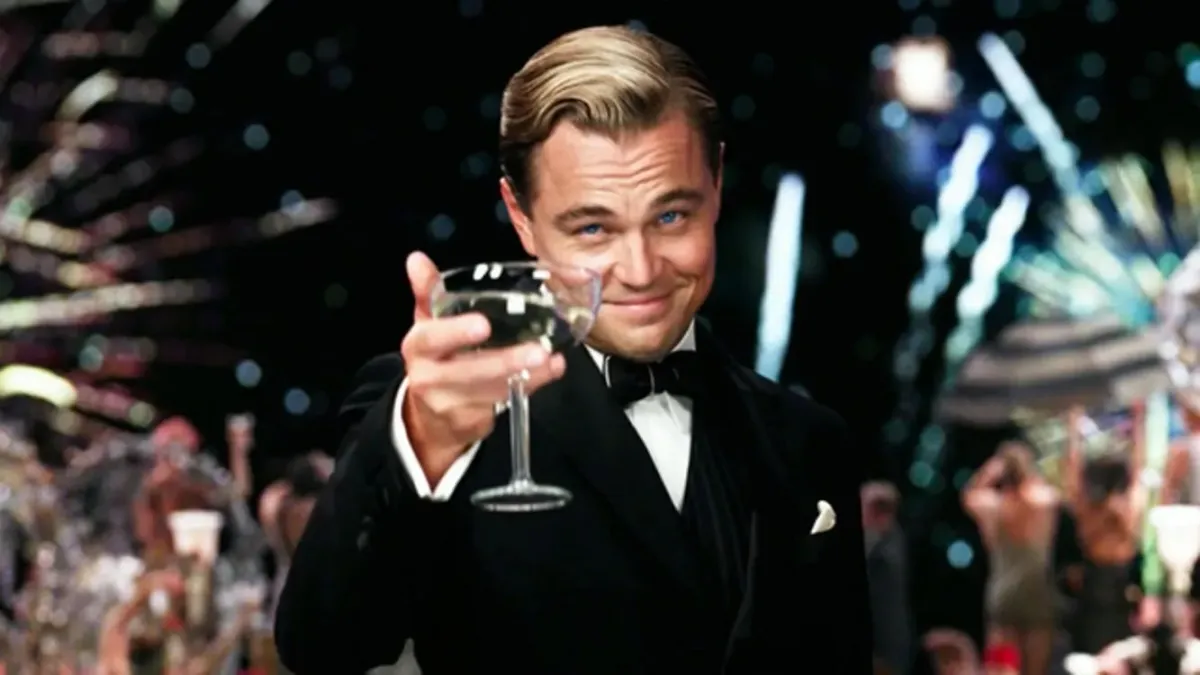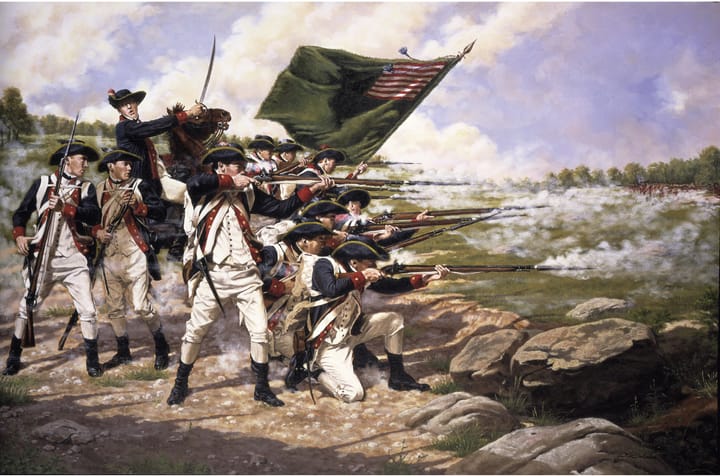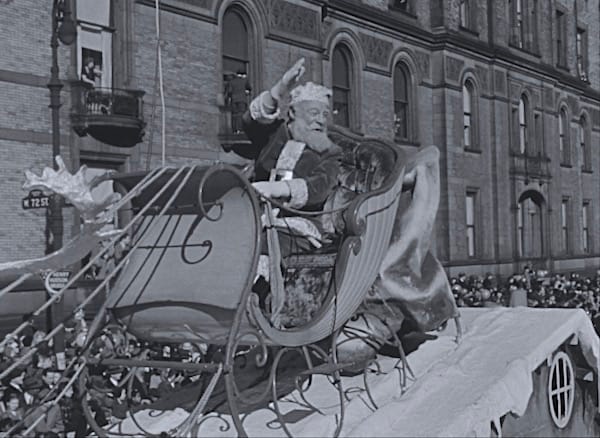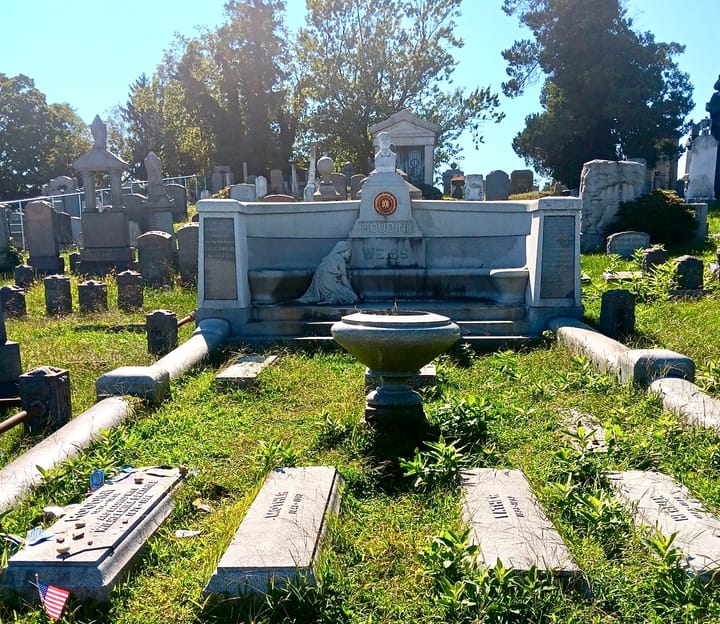"The Great Gatsby" is 100 years old today and as modern as ever
Our old sport Dave looks back on a book that, for better or for worse, could basically all take place today

Today, April 10, marks the 100th anniversary of the publication of The Great Gatsby, a story of the worst summer of your life, spent hanging around the worst rich people New York has to offer. Having found out about the centennial as I made my way through New York: A Documentary Film (perhaps you heard about how I’m a fan of that series), I decided it was as good a time to re-read Gatsby for the first time since I was a checked-out high school student.
The 1920s feel impossibly far away, obviously I guess, 100 years ago is a long time ago. And yet, leaving aside the anniversary itself, 2025 is as good a time as ever to revisit F. Scott Fitzgerald’s depiction of elite life in the Jazz Age as decadent and depraved. Here we are, coming out of an era of stupid, pointless war and doing our best to tamp down recollections of a devastating pandemic. America has melted its brains with extreme wealth and we’re making some cataclysmic economic decisions. The Chicago White Sox are utterly without hope, professional wrestling is a cornerstone of the cultural landscape and you still have as good a chance as ever to get away with killing someone with a car.
Gatsby wasn’t the end of the good times in America. But it was an exhausted warning shot by someone that considered, like our narrator Nick Carraway does when he realizes he turned 30 watching his friends engage in a drunken relationship crackup, he’s possibly too old for this shit. Fitzgerald was 29 when the book was published, and a few years later wrote an even more explicit burial of the Jazz Age, a kind of proto-James Murphy (sorry), an elder statesman who could tell you how great the party was but also make you wonder what the point of having one was (albeit Fitzgerald was never successful enough to open a wine speakeasy somewhere in the city). With that in mind, it does start to make a bit of sense to me that you all chose “New York I Love You But You’re Bringing Me Down” as the New York City song of our quarter-century.
The @nygroove.nyc Bangers Bracket is over and the song you've all chosen as the best NYC song of the 21st century is...LCD Soundsystem's "New York I Love You But You're Bringing Me Down" You all feeling okay? Do you need a hug?
— Good Idea Dave Bloomberg (@davecolon.bsky.social) 2025-04-03T14:05:52.255Z
I heard some other echoes of the 2010s and 2020s in the book too, that while never ignored when people talked about the book, stood out to me.
That modern feeling isn’t delivered by Jay Gatsby really, though I won’t lie, like Jay I have also thrown parties in an attempt to impress a girl. And I found out, like he did, that that doesn’t really work, so maybe I should have paid more attention in high school. But anyway, it was in Tom Buchanan, Gatsby’s dunderheaded romantic competition, and Nick Carraway, our wide-eyed transplant narrator, that I found moments that made me think this story could be done in mid-21st-century Bushwick.
Finished re-reading The Great Gatsby last night and was waylaid by an intrusive thought that some enterprising filmmaker with no taste could easily overlay a lot of the story to 2009 Bushwick and probably make a killing
— Good Idea Dave Bloomberg (@davecolon.bsky.social) 2025-03-13T15:07:06.608Z
Six pages after he’s introduced in the very beginning of the book, Tom is at dinner doing stream of consciousness riffs on The Rise of the Coloured Empires, a book, “all scientific stuff,” that details the threat that the lesser races pose to the Nordic race, which is responsible for all the makings of civilization. By the time Nick is done for the night, he sums up Tom as embracing the edge of “stale ideas as if his sturdy physical egotism no longer nourished his peremptory heart.”
Even if Tom Buchanan didn’t get into crank ideas about race past Chapter 1, his brand of ultra-wealthy dipshit, obsessed with adding a scientific sheen to his gutter racism, is real hot these days. Modern conservatism and the Trump universe are rotten with IQ obsessives and “race realists” who you would jump out a window to avoid talking to at a party. But Tom really drives home his character as a 2020s modern dumb guy closer to the end of the book, when he tries drunkenly explaining some more excellent interesting shit he read while the book’s main characters are gathered for a lunch on the hottest day of the year.
“I read somewhere that the sun’s getting hotter every year…It seems that pretty soon the earth’s going to fall into the sun — or wait a minute — it’s just the opposite - the sun’s getting colder every year.”
Now Tom Buchanan is, throughout the book, a violent, racist misogynist spared any consequence of his actions thanks to his incredible wealth, which is, of course, a timeless villain. But attempting to explain to his guests that the sun is either getting hotter or colder but the earth is definitely going to fall into it sooner rather than later is pure uncut “Guy who repeats stuff he half-listened to on a podcast hosted by a red-pilled comedian.” It’s Fox News host “science,” and while every decade in America has had its loud dumb guys to speak of, I see mirror versions of a particular kind of faux-scientific dumbness at work that could only grow in the petri dish of the economic exuberance and pure "intellectual" dipshittery of the ‘20s in this or the last century.
Fortunately, there’s more modern aspects in the novel that stick out than just rich idiots embracing eugenics. Nick’s brief affair with golf pro Jordan Baker, who he meets on his first night at the Buchanans’ home and pairs off with for a big chunk of the book, is also something that feels like it wouldn’t have been out of place or in a book about the sex lives of bored young 21st-century Brooklynites.
Nick’s role as a Midwest transplant eager to make a fortune and dip a toe into the corruption of the East Coast is a perennial story of New York. But, and I say this admittedly as someone who isn’t a scholar of early 19th century American sociology, I never considered that the loosened-up sexual mores of the era went as far as casually dating someone you definitely realize is a huge mistake for you but hey whatever why not. Possibly though, this really was the beginning of a more expansive national makeout scene, with Fitzgerald himself suggesting that heavy petting filtered down from the very rich as the 20s began. The way Nick and Jordan enter and exit a summer romance isn’t exactly a situationship, but it also has the nonchalant, hopeful beginning of one and the halting end of one.
Going from their friends’ supporting players to a side romance of their own, the end of Nick and Jordan’s affair doesn’t get the emotions or the tears or operatic feelings of the end of Daisy Buchanan and Gatsby. The penultimate conversation between the two is a phone call that could just as easily read as two people texting each other while each side of the conversation is trying to figure out who’s gonna be the one to decide to break things off:
“You weren’t so nice to me last night.”
“How could it have mattered then?”
Silent for a moment. Then:
“However - I want to see you.”
“I want to see you too.”
“Suppose I don’t go to Southampton, and come into town this afternoon?”
“No - I don’t think this afternoon.”
“Very well.”
“It’s impossible this afternoon. Various-”
We talked like that for a while, and then abruptly we weren’t talking any longer. I don’t know which of us hung up with a sharp click, but I know I didn’t care.
(Incidentally, I think that the two most recent Gatsby movies from 1974 and 2013 fall short by neglecting to include much of anything involving Nick and Jordan’s summer fling, which is as essential to understanding Nick’s eventual disillusionment with the city as anything else he goes through in the book.)
Now obviously you don’t write what people consider the Great American Novel without including at least a few themes that survive the era when your book comes out. The story’s critiques of America’s immutable class structure, the reality-warping effects of wealth and the totally unattainable American Dream are unfortunately as relevant as ever. Fitzgerald’s way of putting that together, with his keen eye for documenting excess and the end in the ‘20s, leaves us another lesson as well: Maybe the only thing more timeless than getting into the party in the city is knowing when it’s over.




Comments ()